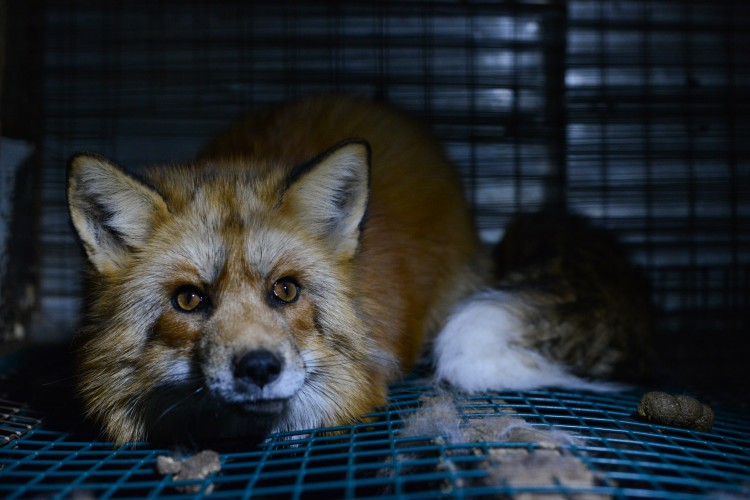On 10 May, with 24 votes in favour and 49 against, the parliament of Estonia rejected the bill that would outlaw fur farming in Estonia over a period of ten years. It was found that if animal welfare requirements are met, there is no need to ban fur farms. As it is impossible for the needs of mink and foxes to be met by the fur industry and welfare cannot be guaranteed, NGO Loomus finds the ban might step in even sooner than in ten years.

“As fur farms are unable to meet welfare requirements and they cannot guarantee animal wellbeing even with stricter requirements, we might see fur farm bans in less than ten years. The issue has also been taken up in the European Union. This means that the process and campaigns of banning fur farming in Estonia will continue even more intensely,” said Kadri Taperson, the manager of Loomus.
It must also be taken under consideration that younger generations care more and more about the welfare of animals. “Thus, pressure from society will grow and there will be more changes than the current parliament members can foresee,” said Taperson. “Politicians’ views on animals and nature will definitely be one of the key questions for the young voters before the elections this autumn.”
According to the survey conducted by Kantar Emor at the end of December, 69 percent of the Estonian population does not support raising and killing animals for producing fur.
The bill that called for imposing a ban on the farming of animals only or primarily for the purpose of fur production, as well as breeding and reproduction only or mainly for the purpose of fur production was filed by 14 members of the parliament: Barbi Pilvre, Marianne Mikko, Hardi Volmer, Hannes Hanso, Rainer Vakra, Inara Luigas, Heiman Lenk, Lauri Luik, Heidy Purga, Eiki Nestor, Oudekki Loone, Jaanus Karilaid, Eerik-Niiles Kross, and Liina Kersna.
In 2014, the national petition to ban fur farms collected more than 10 000 signatures in Estonia. The international petition to ban fur farms in Estonia has collected almost 41 000 signatures so far (https://www.change.org/p/parliament-of-estonia-end-fur-farming-in-estonia).
The United Kingdom, Northern Ireland, Austria, Croatia, the Netherlands, Macedonia, Brazil, Bosnia and Herzegovina, Slovenia, German states Bavaria, Hesse, North Rhine-Westphalia and Schleswig-Holstein, and the largest region in Belgium Wallonia, have completely banned fur farms; Switzerland, Denmark, Sweden, New Zealand and the USA have banned fur farms partially. Fur farm bans are currently strongly debated over in Belgium, Germany, Czech Republic and Luxembourg.
